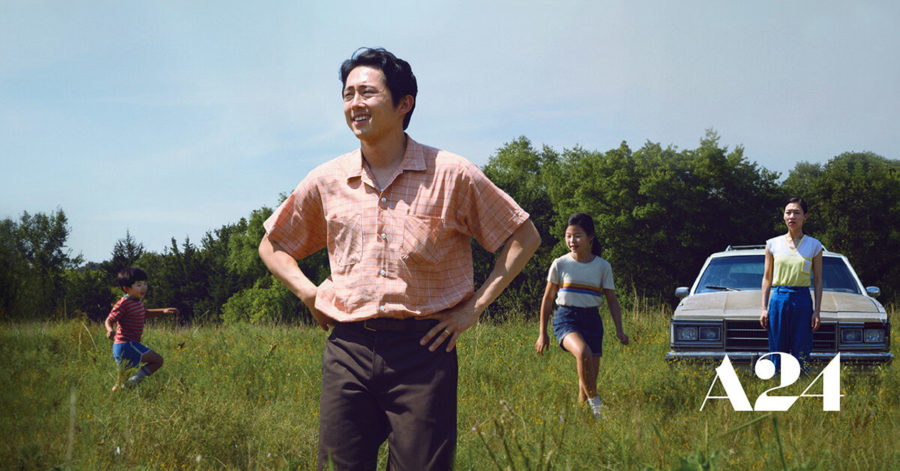‘Minari’, which premiered Feb. 12, is the closest to a cinematic experience we will get during the pandemic. It paints a stunning picture of Americana and Korean food as an immigrant family chases an unraveling American Dream.
In the 1980s, Jacob Yi (Steven Yeun) decides to move his family from California to rural Arkansas in order to build a better life as a farmer. He had previously found success as a chicken sexer in a factory, but he wants to make a name of his own. He wants a life his children can look to with pride.
Jacob’s dreams come at the expense of his family. Spending every penny he has to finance his new life, his family is forced to live in a cramped trailer on otherwise picturesque farmland. His family — especially his wife, Monica (Han Ye-ri) — resent their new surroundings, but Jacob is determined to see things through. He finds a kindred spirit in Paul (Will Patton), an incredibly religious local, who he recruits to work on the farm.
But the real star of the film is Jacob’s son, David (Alan Kim), a seven-year-old boy who has only known Californian life. His older sister, Anne (Noel Kate Cho), briefly lived in Korea, but they immigrated before David was born. A central conflict of ‘Minari’ is being at odds with your identity, and nowhere is this better portrayed than in David’s story. David finds himself alienated from both Korea and America, and is unsure where to find solace. In one scene, a child asks David, “Why is your face flat?”, to which David responds, “It isn’t.” He has no one that truly sees him and understands him, and he feels more alone than ever.
It doesn’t help that David has a heart condition, making it so he can’t explore the world the way he wants. He wants to run and be free on the miles of land his family now possesses, but he physically can’t. Thematically, this shows how America seems like a place where you can live out your dreams, but it’s oftentimes full of heartbreak and anguish.
Things only get more tense once Soon-ja (Youn Yuh-jung), Monica’s mother, moves into the trailer. Jacob hopes Soon-ja will help ease his family’s isolation in Arkansas, and make it so he can spend all of his time and resources on the farm.
However, David resents his grandmother. He says she’s “not a real grandmother” because she curses, wears men’s underwear and doesn’t know how to cook anything, much less the cookies he desires. It doesn’t help that she “smells like Korea”, which only further isolates him from his Korean heritage.
Adding to the Yi family’s disillusionment of Americana, Jacob, so hopeful that his farm will succeed, is still filled with anguish and turmoil, much like America itself. Jacob’s dream, much like the American dream, is largely unsustainable. As much as he wants to, he can’t have it all. So, Jacob has to figure out what he really wants: his family or his success.
This is what happens at the climax of the film, which also brings its themes to a boiling point. When Jacob finally finds a buyer for his crops, his wife threatens to leave him. Then his crops catch fire, and he must decide: keep his wife, or keep his dream. In the end, he chooses his wife. Even if he can’t have it all, he can still find solace in those he loves.
For a story full of instability and conflict, ‘Minari’ is incredibly tender and told with care. The name “Minari” comes from the plant which comes out of the land itself. The connection one feels with land is personal and delicate, which is beautifully reflected in the lives of the Yi family, despite all their struggles.































